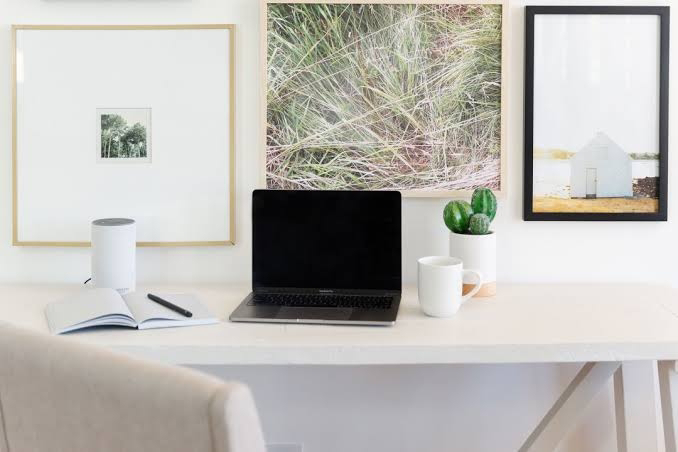Decluttering is not just about organizing your desk, cleaning out your closet, or rearranging books on your shelf. It goes much deeper than that—it's about the state of your mind. A cluttered mind leads to uncertainty and chaos, and soon, this mental clutter spills over into other aspects of your life. When your mind is cluttered, everything around you becomes cluttered too.
Excessive clutter can make it difficult not only to see new things but to absorb them because there’s simply no room left. It creates inefficiencies and hampers productivity. Think about how hard it is to focus on a single task when your mind is racing with a dozen unrelated thoughts. Clutter drains your energy and distracts you from the things that truly matter.
One of the simplest ways to declutter is by physically clearing your surroundings—your desk, your closet, your books. But it’s not just about clearing out physical objects; it’s also about clearing your mind. And like with anything else, decluttering is something you need to do regularly.
Why Decluttering is Good for Growth
A cluttered mind holds you back. It stops you from identifying patterns, seeing opportunities, and recognizing change. When you declutter, you create space—for new ideas, for creativity, for focus. Without that space, you can feel stagnant, trapped in your own mental noise. Over time, clutter builds up like dust, and if you don't take the time to clear it, you may find yourself stuck, unsure of how to move forward.
Decluttering isn’t just a nice-to-have practice; it’s essential for growth—both personally and professionally. It allows you to focus on what truly matters, make better decisions, and approach challenges with clarity and confidence.
Questions to Ask While Decluttering
Decluttering doesn’t mean just throwing things away. It’s about being intentional with what you keep and what you let go of. Here are a few powerful questions to ask yourself:
What is no longer useful? – Whether it’s an outdated belief, an old project, or a habit that’s holding you back, ask yourself if it’s still serving a purpose.
What is no longer required? – Some things, both physical and mental, outlive their relevance. It could be as simple as a pair of shoes you haven’t worn in years or as complex as a business strategy that no longer aligns with your goals.
What is not making sense anymore? – Sometimes we hold onto things because they once made sense, but now they don’t. This can be a mindset, a relationship, or even an approach to work that needs to be revisited.
A few more questions worth considering (of you may add to these)
Does this bring me joy?
Does this align with my goals?
Am I holding onto this because of sentimental value or fear?
How to Practice the Art of Decluttering
Decluttering is more than a one-time event—it’s a habit. Here are a few ways to practice decluttering:
Set periodic reminders – Whether it’s once a month or every few weeks, make a habit of reviewing and decluttering. Ask yourself what you need to let go of, what you need to keep, and what might need to be replaced. Some things may last for decades, while others are only useful for a short time. The key is regularly sifting through it all.
Digital declutter – With our lives increasingly revolving around technology, don’t forget to declutter your digital space. Clear out your inbox, organize your files, and delete apps or software that are no longer necessary. A clutter-free digital life can lead to a clearer mind.
Mental declutter – This might be the most important one. Decluttering your mind can take many forms—meditation, journaling, or simply setting aside quiet time to reflect. When you clear your mind, you give yourself space to think clearly and act with intention.
Declutter your to-do list – We often create long lists of things to do, but not all of them are essential. Prioritize what truly needs your attention, and let go of tasks that don’t contribute to your growth or well-being.
Create a 'no' list – Sometimes, we accumulate clutter by saying yes to too many things. Practice the power of saying no to tasks, commitments, or even people that no longer align with your priorities.
The Importance of Letting Go
Letting go is hard. We’re wired to hold onto things, whether it’s for sentimental reasons or out of fear of change. But letting go is essential to growth. When you let go of what no longer serves you, you create room for new opportunities, new experiences, and new successes.
Remember, decluttering isn’t a one-time event. It’s a continuous practice of self-awareness and reflection. By regularly asking yourself what’s useful, what’s necessary, and what makes sense, you create space for new growth and ensure that you’re always moving forward.
So, take a moment today to declutter—whether it’s your desk, your mind, or your calendar. The process of letting go can be challenging, but the rewards are worth it. With less clutter, you’ll be able to focus on what truly matters, feel more in control, and live a life that’s not just organized but purpose-driven.
Embrace the art of decluttering, and you’ll find clarity, freedom, and room for the things that truly matter.

Comments
Post a Comment